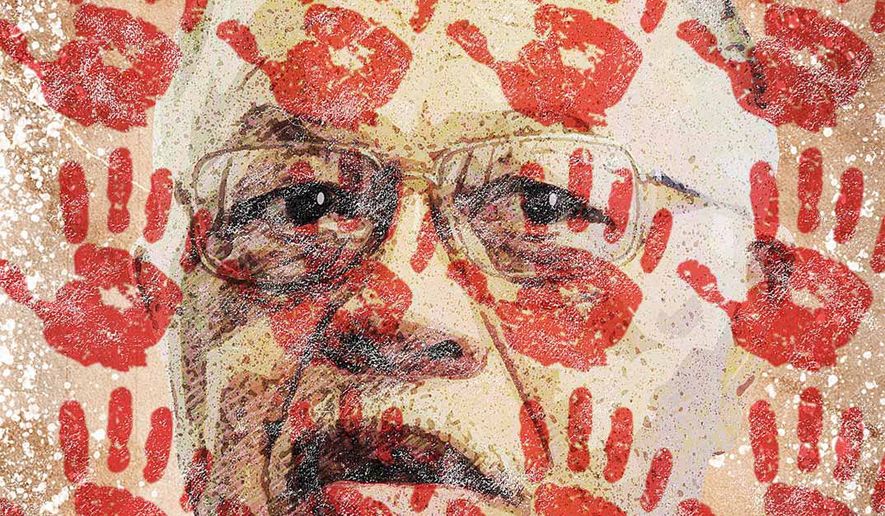OPINION:
When Philadelphia police obtained a search warrant and raided Dr. Kermit Gosnell’s clinic eight years ago, they were seeking evidence of illegal prescriptions for opioids and other addictive drugs. Gosnell would later be sentenced to 30 years in prison for running an illegal prescription mill, but they found much more.
Gosnell’s Women’s Medical Society was no ordinary provider of abortion services. His clinic was filthy and later described by those who were there that night as “a house of horrors.” The place stank of cat urine and death. Police found infant body parts in the garbage disposal and in frozen in milk cartons in the freezer. A cabinet contained dozens of jars of baby feet the police later came to believe were souvenirs, but although the police knew something was terribly wrong, they weren’t sure just what they had stumbled on. They called in reinforcements.
The ensuing investigation resulted in multiple indictments. Not only was the facility substandard, poorly trained unlicensed employees were drugging Gosnell’s patients with his permission, but the doctor was ignoring virtually every regulation on the books. Gosnell’s neglect and mistreatment of his patients, mostly poor and desperate, led to at least one death and perhaps more.
The unsanitary conditions at the clinic resulted in dozens of hospitalizations with dangerous and even life-threatening infections. Worse, as the investigators dug deeper they discovered that Gosnell was performing not just legal abortions or even illegal partial birth abortions, but was in the habit of delivering babies live and then killing them.
Investigators soon discovered that state authorities and women’s rights groups had ignored complaints about conditions at the clinic for years. Regulators turned a blind eye to conditions in the clinic and homicide detectives would not even investigate the reports of suspicious deaths. Dr. Gosnell, an African-American, was lauded as a community hero for his service to the community, but it turned out that he was instead a money-grubbing serial killer exploiting the very women he professed to serve.
When Gosnell was indicted in 2011 and went to trial in 2013 for multiple murders, abortion rights groups argued that he was simply being persecuted for performing abortions as part of a national anti-abortion conspiracy. The national media largely ignored what was unfolding in Philadelphia. Political correctness led to the selection of a jury that media interviewers later discovered was heavily pro-choice, but as the evidence piled up at trial none of that mattered. Gosnell was convicted and is serving three consecutive life sentences. Several of those who assisted him are also in prison.
That the Gosnell case received so little media coverage at the time troubled some journalists, but it wasn’t until Kirsten Powers called her fellow journalists to task in an April 2013 USA Today column titled “We’ve Forgotten What Belongs on Page One” that others picked up the story. The Washington Post defended its failure to cover it because it was “a local murder story” unlike, say, the Trayvon Martin shooting in Florida that dominated the news for weeks. Eventually The Post and other media outlets acknowledged missing a blockbuster story and pledged to do better in the future.
On October 12, a movie based on the Gosnell case opened in theaters across the country. Those same publications that ignored the case during the actual trial are either ignoring the movie altogether or reviewing it as cheap propaganda and bad fiction. In one of the rare reviews that have appeared, the reviewer cited the words screenwriters allegedly put into the mouth of the “fictional Kermit Gosnell” in which he compares himself to George Tiller, the Kansas doctor assassinated by right to lifers in 2009 as evidence of their anti-abortion “bias.”
In fact, the real Kermit Gosnell made this exact comparison and virtually all of the dialogue in the movie was not made up, but taken from interviews and testimony from the case. To the script writers, if not to the press, “true crime” means just that.
Another reviewer took the producers to task for referring to Gosnell in the movie’s title as “America’s Biggest Serial Killer.” The reviewer notes that he can hardly be compared to, say Ted Bundy who murdered 28 people, since Gosnell was only convicted of killing three. In fact, Bundy was only actually convicted of two murders, though like Gosnell, he killed many more.
The movie, “Gosnell: The Trial of America’s Biggest Serial Killer” is in theaters right now and, believe me, it is worth seeing regardless of one’s views on abortion or the opinions of those few who have bothered to review it.
• David A. Keene is an editor at large for The Washington Times.




Please read our comment policy before commenting.